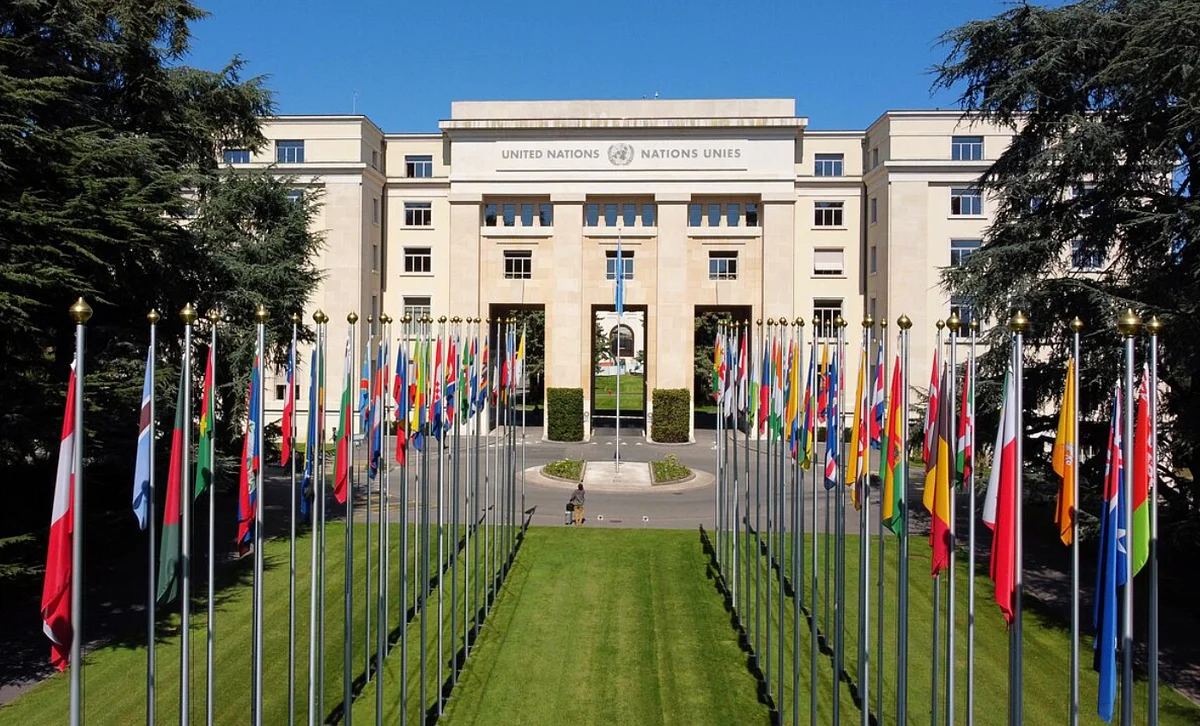Sweeping UN Sanctions Loom For Iran After Nuclear Talks Fail
Sweeping UN sanctions loomed for Iran late Saturday for the first time in a decade, after last ditch nuclear talks with Western powers failed to produce a breakthrough.
President Masoud Pezeshkian said the United States had offered Iran only a short reprieve in return for handing over its whole stockpile of enriched uranium, an offer he described as unacceptable.
Recommended For YouAn 11th-hour effort by Iran allies Russia and China to postpone the sanctions until April failed to win enough votes on the Security Council on Friday, meaning they will go into effect at midnight GMT on Saturday.
Stay up to date with the latest news. Follow KT on WhatsApp Channels.
Though Iran allowed inspectors back into some of its nuclear facilities, Western governments said they saw insufficient progress to justify delaying sanctions, after a week of high-level diplomacy.
European powers triggered the "snapback" mechanism a month ago, accusing Iran of failing to comply with its obligations under a 2015 deal with major powers that saw the UN sanctions frozen in return for restrictions on its nuclear activities.
Pezeshkian told reporters in New York that Washington had asked Tehran to relinquish all of its enriched uranium in exchange for a three-month reprieve from sanctions.
The United States "wants us to hand over all our enriched uranium to them, and in return they would give us three months" exemption from sanctions, Pezeshkian told reporters in New York before flying home.
"This is by no means acceptable," he said.
He previously said France had made a similar proposal, offering only a one-month delay.
"Why would we put ourselves in such a trap and have a noose around our neck each month?" he asked, accusing the United States of pressuring Europeans not to compromise.
'Null and void'Pezeshkian reiterated that Iran had no intention of developing nuclear weapons, charging that the issue was being used as a pretext for efforts by Israel and the United States to topple the Islamic republic.
Talks over Iran's nuclear activities had also involved Steve Witkoff - special envoy of US President Donald Trump - who said Washington did not want to harm Iran and was open to further discussions.
But Pezeshkian dismissed him as not serious, saying he reneged on understandings reached in past negotiations.
Iran and the United States had held several rounds of Omani-brokered talks earlier this year before they collapsed in June when first Israel and then the United States attacked Iranian nuclear facilities.
Rial hits new lowIran recalled its envoys from Britain, France and Germany - the three countries which triggered the renewed sanctions - for consultations on Saturday, state television reported.
The sanctions will reinstate a global ban on dealings with companies, individuals and organisations accused of involvement in Iran's nuclear and ballistic missile programmes.
"The current (economic) situation was already very difficult, but it's going to get worse," said an Iranian engineer who asked to be identified only by his first name Dariush.
"The impact of the renewed sanctions is already evident: the exchange rate is increasing, and this is leading to higher prices," the 50-year-old told AFP, lamenting a standard of living that is "much lower" than it was "two or three years ago."
The dollar was trading at around 1.12 million rials on the black market on Saturday, a record high according to several currency tracking websites.
An AFP journalist at Tehran's Grand Bazaar saw brisk business at jewellery stores as people rushed to buy gold.
"Most people fear another war because of the snapback," Dariush said.
It remains to be seen if all governments around the world will enforce the new restrictions.
Russian deputy ambassador Dmitry Polyansky said his country considered the renewed sanctions "null and void."
Russia and China had both sought to delay the reimposition of sanctions until April but failed to muster enough votes on the Security Council on Friday.
Economic 'malaise'The United States already enforces unilateral sanctions on Iran and has put huge pressure on third countries to stop buying Iranian oil, although China has defied the pressure.
Brussels-based think tank the International Crisis Group said Iran seemed dismissive of the renewed UN sanctions as s it had already learnt to cope with US sanctions.
But it noted that the snapback was not easy to reverse as it would require consensus at the Security Council.
"It is also likely to compound the malaise around an economy already struggling with high inflation, currency woes and deepening infrastructure problems," it said.
In an address to the UN General Assembly on Friday, Israeli Prime Minister Benjamin Netanyahu urged no delay in reinstating the sanctions.
He also hinted that Israel was ready to take further military action after the 12 days of bombing that Iranian authorities say killed more than 1,000 people in June.

Legal Disclaimer:
MENAFN provides the
information “as is” without warranty of any kind. We do not accept
any responsibility or liability for the accuracy, content, images,
videos, licenses, completeness, legality, or reliability of the information
contained in this article. If you have any complaints or copyright
issues related to this article, kindly contact the provider above.
Most popular stories
Market Research

- Zebu Live 2025 Welcomes Coinbase, Solana, And Other Leaders Together For UK's Biggest Web3 Summit
- 0G Labs Launches Aristotle Mainnet With Largest Day-One Ecosystem For Decentralized AI
- Aster's Next Era Begins: Airdrop Points Stage 2 Live, TGE Countdown Begins
- Ethereum Based Meme Coin Pepeto Presale Past $6.6 Million As Exchange Demo Launches
- Industry Leader The5ers Expands Funding Programs To U.S. Traders
- LYS Labs Moves Beyond Data And Aims To Become The Operating System For Automated Global Finance






















Comments
No comment